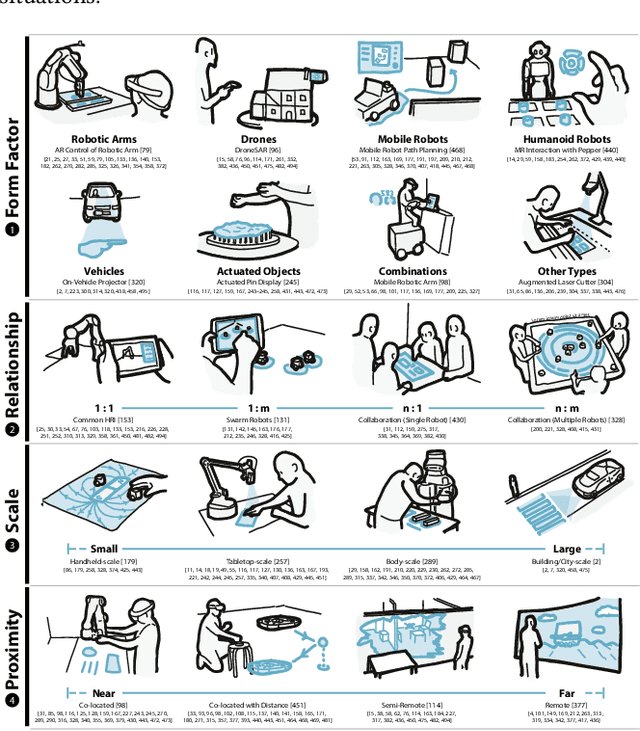Augmented Reality and Robotics: A Survey and Taxonomy for AR-enhanced Human-Robot Interaction and Robotic Interfaces
Paper and Code
Mar 07, 2022



This paper contributes to a taxonomy of augmented reality and robotics based on a survey of 460 research papers. Augmented and mixed reality (AR/MR) have emerged as a new way to enhance human-robot interaction (HRI) and robotic interfaces (e.g., actuated and shape-changing interfaces). Recently, an increasing number of studies in HCI, HRI, and robotics have demonstrated how AR enables better interactions between people and robots. However, often research remains focused on individual explorations and key design strategies, and research questions are rarely analyzed systematically. In this paper, we synthesize and categorize this research field in the following dimensions: 1) approaches to augmenting reality; 2) characteristics of robots; 3) purposes and benefits; 4) classification of presented information; 5) design components and strategies for visual augmentation; 6) interaction techniques and modalities; 7) application domains; and 8) evaluation strategies. We formulate key challenges and opportunities to guide and inform future research in AR and robotics.
 Add to Chrome
Add to Chrome Add to Firefox
Add to Firefox Add to Edge
Add to Edge